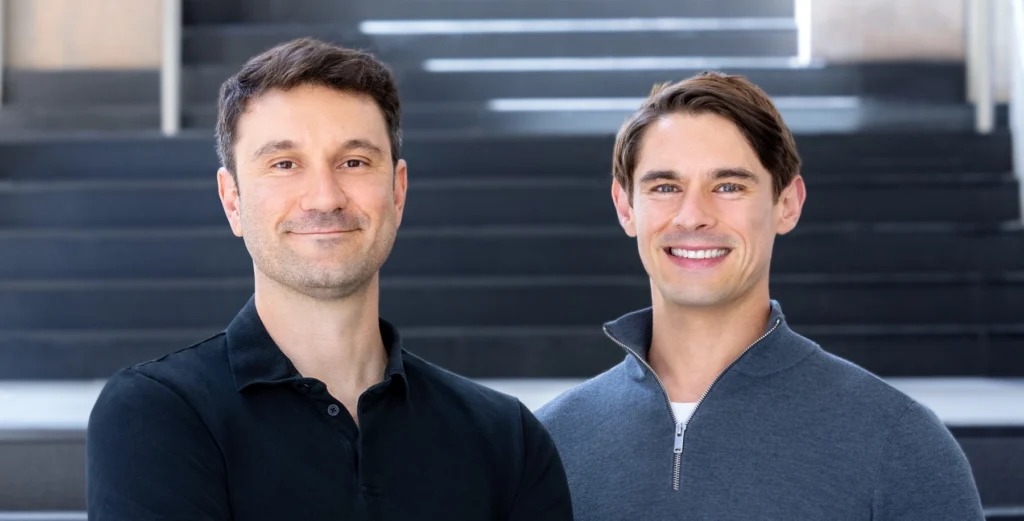
Periodic Labs AI Science Startup: $300M Bet on AI-Driven Discovery
Founders from OpenAI and Google Brain Ignite a New Era in Scientific Automation
Periodic Labs AI science startup has captured global attention with a staggering $300 million seed round. Founded by Liam Fedus, one of OpenAI’s most influential researchers, and Ekin Dogus Cubuk, formerly of Google Brain, the company aims to revolutionize how science itself is conducted.
The founders’ vision centers on integrating AI reasoning, robotic automation, and simulation to accelerate experimental discovery. Periodic Labs AI science startup believes the convergence of these technologies marks a turning point for material innovation.
AI Meets Experimental Science
According to Cubuk, several breakthroughs aligned to make this possible.
Robotic arms capable of powder synthesis—the process behind new material creation—have recently proven dependable. At the same time, machine learning simulations now model complex systems with unprecedented precision.
The final piece of the puzzle: large language models (LLMs). Their advanced reasoning abilities, honed by teams like Fedus’s at OpenAI, can now interpret results and suggest refinements. The founders saw that combining these technologies could automate material discovery—an “AI loop” where models design, test, and learn from experiments.
From Concept to Company
The inspiration for Periodic Labs emerged from a conversation between Fedus and Cubuk about the state of AI in scientific research. Both had seen growing enthusiasm in Silicon Valley about generative AI’s potential to transform discovery. They decided the time was right to act.
Cubuk had already proven the concept in 2023 through a Google project that used a robotic-powered lab to create 41 new chemical compounds from LLM-generated recipes. The Periodic Labs AI science startup seeks to build on that foundation at a commercial scale.
“Making contact with reality, bringing experiments into the AI loop — we feel like this is the next frontier,” said Fedus.
The $300 Million Funding Frenzy
After Fedus left OpenAI, investors rushed to back his vision. Leading the round was Felicis, with participation from Andreessen Horowitz, DST, Nvidia’s NVentures, Accel, and prominent angels including Jeff Bezos, Elad Gil, Eric Schmidt, and Jeff Dean.
Peter Deng of Felicis—formerly at OpenAI—was the first to commit funding. He described Fedus as “a very big deal within OpenAI, very well loved and impactful.” Their initial meeting, a spontaneous walking pitch through San Francisco’s Noe Valley, sealed the deal.
This $300 million seed round is remarkable not just for its size but for what it signals: top-tier investors betting that AI-driven experimentation could redefine the future of research.
Building the AI Science Lab
Periodic Labs now employs over two dozen leading scientists and engineers, including Alexandre Passos, a creator of OpenAI’s o1 and o3 models; Eric Toberer, a superconductor expert; and Matt Horton, known for developing Microsoft’s GenAI tools for materials science.
Every week, team members give graduate-level lectures to each other to deepen cross-disciplinary understanding. The company’s first mission: discovering new superconductors—materials that could unlock high-efficiency, low-energy technologies.
Although its robotic systems are still being trained, the lab is already combining simulation data and real-world testing. The founders understand the risk: scientific breakthroughs are unpredictable. Yet even failed experiments generate valuable data that strengthen AI learning cycles.
The Broader Shift Toward AI Science
OpenAI’s own leadership has signaled growing interest in the same direction. Last month, Kevin Weil, OpenAI’s VP, announced the launch of “OpenAI for Science,” a division aiming to build an AI platform for accelerated discovery. The ecosystem around AI-driven experimentation is expanding rapidly.
Periodic Labs stands at the intersection of AI reasoning, robotic execution, and scientific exploration. Whether or not it achieves immediate breakthroughs, its creation marks a shift in how modern science might operate—faster, iterative, and increasingly data-driven.
Implications for the Future
If Periodic Labs succeeds, its framework could become a model for how AI systems collaborate with physical labs. The ability for models to test hypotheses in real time could shorten discovery cycles dramatically.
But beyond speed, this approach challenges the traditional motivation system of research. As Cubuk noted, success in science has long been measured by published papers and grants—not exploration or failed attempts. The AI loop, however, values every outcome as data, redefining what “progress” looks like.
Will AI-powered experimentation truly accelerate discovery, or will it expose new complexities in how machines interpret the physical world?
Explore Business Solutions from Uttkrist and our Partners’, Pipedrive CRM 2X the usual trial with no CC and no commitments and more uttkrist.com/explore



